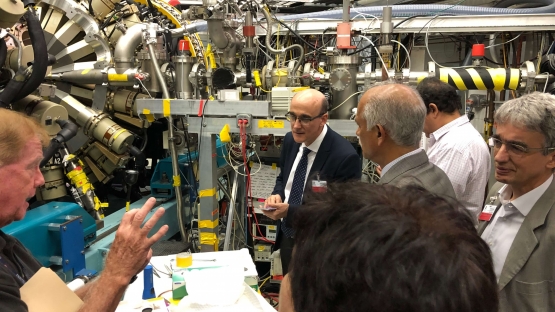Nineteen directors of National Nuclear Institutes and Institutions (NNIs) in the Latin American and Caribbean region met at the Argonne National Laboratory (ANL) in Illinois, USA from August 10 to 23 to discuss issues associated with institutional innovation, sustainability and partnership-building in the nuclear sector.
Member States in the Latin America and the Caribbean region have made substantial progress towards establishing and strengthening nuclear institutions and national commissions which focus on the application of nuclear science and technology with the support of the IAEA technical cooperation programme. As this field is evolving rapidly, the IAEA and States-Parties to the ARCAL Regional Cooperative Agreement have identified the need to take additional steps to consolidate the results achieved in the region so far, and to continue to support national nuclear institutions.
To share techniques, practices and experience, a regional meeting was organized, in cooperation with the U.S. Department of Energy and the Argonne National Laboratory.
During the meeting, participants had the opportunity to exchange experiences with staff of the United States’ principal nuclear laboratories and to identify opportunities for future collaboration. They considered cooperation in the areas of strategic planning and business plans, public information and communications, partnerships with the industrial sector and with other research institutions, as well as in the areas of integration and interaction with the broader nuclear education community.







